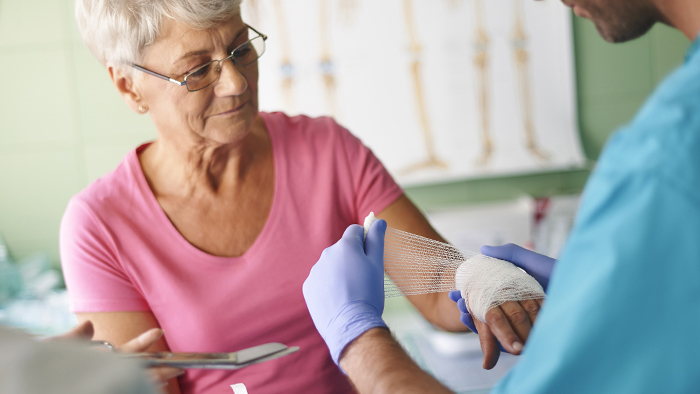People with non-healing and chronic wounds now have a place to turn. Located on the second floor of the Medical Office Building in the hospital, the HSHS St. Joseph’s Center for Wound Care & Hyperbaric Medicine provides specialized treatment for chronic or non-healing wounds. Our Center for Wound Care & Hyperbaric Medicine offers state-of-the-art treatments including debridement, dressing selection, special shoes and patient education.
What are Chronic or Non-Healing Wounds?
Chronic and non-healing wounds can result from a number of factors, including diabetes, poor circulation, trauma, vascular disease and immobility (which can lead to pressure ulcers, commonly known as "bed sores"). These sores or wounds do not significantly improve from conventional treatments.
An estimated eight million Americans suffer from chronic wounds. Non-healing wounds lead to a lower quality of life and may lead to amputations. When wounds persist, a specialized approach is required for healing. Typically, a wound that does not respond to normal medical care within 30 days is considered a problem or chronic wound.


